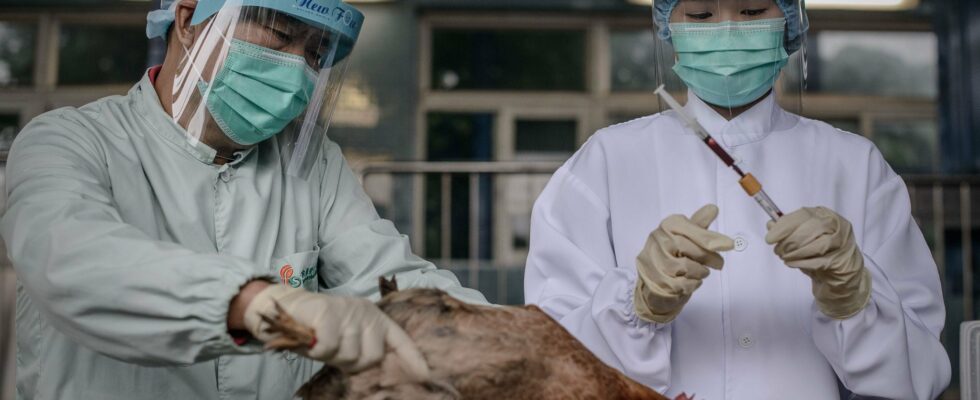A first global case of human death due to H5N2 avian influenza was recorded in Mexico, the World Health Organization (WHO) announced on Wednesday June 5. “This is the first laboratory-confirmed human case of infection with an influenza A(H5N2) virus,” the UN organization said in an epidemiological bulletin.
The H5N2 strain is different from that (H5N1) linked to the current epidemic in cows in the United States, and for which three human cases have been reported.
Aged 59, the person died on April 24 in a specialized institute in the Mexican capital a few hours after being hospitalized there, this source said. The Mexican Ministry of Health said it was a man.
Fever, shortness of breath, diarrhea
The patient developed fever, shortness of breath, diarrhea, nausea and general malaise on April 17, said the WHO, which was notified of the case on May 23. The person had had “no known contact” with poultry or other animals but was already suffering from multiple health problems, WHO said.
No other human cases of H5N2 have been reported at this stage and “there is no risk for the population”, stressed the Ministry of Health. The WHO has deemed this risk “low”.
This death comes after the discovery in March of cases of H5N2 in farmed poultry in the state of Michoacan, which borders the State of Mexico where the victim lived. Other cases of H5N2 were then identified the same month in poultry in Texcoco, in the State of Mexico, and in April in Temascalapa, in the same state.
Less pathogenic than H5N1
At this stage, “it has not been possible to establish whether this first human case is linked to the recent epidemic outbreak in poultry”, however specified the WHO. This is the “first infection with the avian H5 virus in a person reported in Mexico,” she said.
Considered less pathogenic than H5N1, the H5N2 virus has been reported on farms in different countries around the world in recent years. No transmission to humans has until now been documented.
Regarding H5N1, there is currently no evidence of human-to-human transmission, but the WHO expressed its “enormous concern” in April about the spread of this strain.
